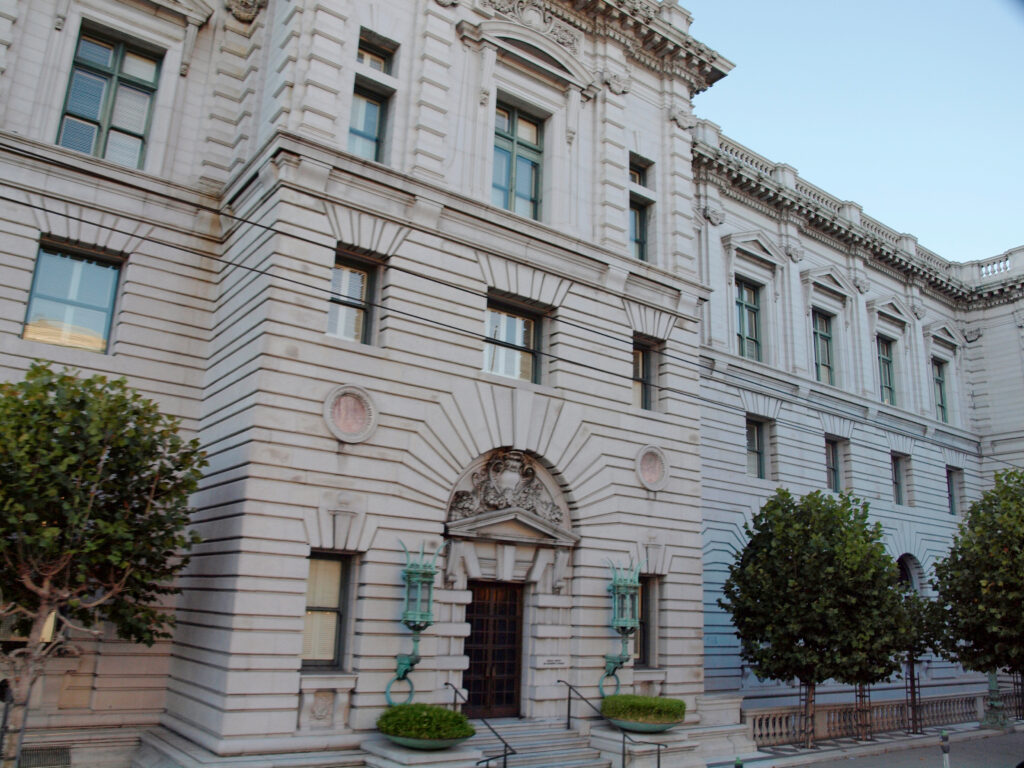9th Circuit Blocks Montana Voter Suppression Law

The 9th U.S. Circuit Court of Appeals upheld a lower court’s ruling Tuesday that blocked a Montana law criminalizing voters who do not cancel their voter registration in other counties or states before registering to vote in the state.
“The district court reasoned, and we agree, that the ‘ability of Montana voters to register to vote without fear of felony criminal penalties’ implicates the public’s interest in ‘exercising the fundamental political right to vote,'” the panel of judges wrote in the opinion.
Over 100 voting and election lawsuits were filed just this year, most of which attempt to make it harder to access the ballot box.
Sign up for our free newsletters so you never miss a new lawsuit or court decision that could impact who takes the White House this fall.
Last September, pro-voting groups in Montana sued multiple Republican state officials, challenging a 2023 law that states “a person or elector may not purposefully remain registered to vote in more than one place in this state or another state any time.” Voters who violate this could be subject to a fine of up to $5,000 and/or a prison sentence of up to 18 months.
The groups argued the law’s “reach far exceeds its stated (and legitimate) purpose of prohibiting double voting,” and its unconstitutionally vague language makes it “unclear whether voters must notify election officials in other jurisdictions and take affirmative action to deregister (and then confirm deregistration) before submitting registration applications in Montana.”
In April, a federal district court temporarily blocked the law, and the state and Republican National Committee quickly appealed the decision to the 9th Circuit.
A three-judge panel of Bill Clinton, George Bush and Joe Biden appointees heard the case on Aug. 14 and affirmed the lower court’s decision on Tuesday.
The crux of the judges’ opinion was that the risk of double voting does not outweigh the harm the law could cause to voters.
The pro-voting groups argued the law “could discourage some of their thousands of members from registering to vote in Montana, especially if those individuals do not know where they plan to vote due to uncertainty about where they will reside during future elections,” the judges wrote in the opinion.
Then, the judges explained the GOP state officials confirmed there were only 14 instances of “suspected double voting” in Montana during the 2020 election.
Original post, Aug. 9
The 9th U.S. Circuit Court of Appeals will hear next week a challenge from pro-voting groups to a Montana law that is currently blocked that criminalizes voters who are registered in more than one jurisdiction.
Montana Gov. Greg Gianforte (R) signed the voter suppression law, House Bill 892, in May 2023, which states that “a person or elector may not purposefully remain registered to vote in more than one place in this state or another state any time.”
Additionally, the law mandates that someone who was previously registered to vote in another county or state must provide their previous registration information on the Montana voter registration application. Also, the legislation changes the language in other provisions that prohibit double voting.
The law says if a person is found guilty of violating this law, they could be subject to a fine of up to $5,000 and/or a prison sentence of up to 18 months.
In September, the Montana Public Interest Research Group and the Montana Federation of Public Employees filed a lawsuit against multiple state officials, including Secretary of State Christi Jacobsen (R) and Attorney General Austin Knudsen (R), challenging the constitutionality of this law.
In the lawsuit, the groups argue the law’s “reach far exceeds its stated (and legitimate) purpose of prohibiting double voting,” and it “criminalizes both the act of maintaining multiple voter registrations and the failure to include prior-registration information on applications, even if voters and registrants have no intention of actually voting in more than one place—and even if they never do.”
The plaintiffs claim that because of the law’s “vague language and unclear standards,” it violates the U.S. Constitution’s guarantee of due process. For example, they state “it is unclear whether voters must notify election officials in other jurisdictions and take affirmative action to deregister (and then confirm deregistration) before submitting registration applications in Montana.”
Additionally, the lawsuit claims that H.B. 892 violates both the First and 14th Amendments by placing an undue burden on a person’s right to vote. The plaintiffs asked the federal district court to block the implementation of the law.
After months of numerous motions being filed, the court granted the Republican National Committee (RNC) and Montana Republican Party’s motion to intervene in the case in January.
Then, on April 24, the court decided to temporarily block the law, siding with the pro-voting groups, in an opinion authored by an Obama-appointed judge.
On May 1, Montana appealed the case to the 9th Circuit, and a couple of weeks later, the state asked the court to pause the lower court decision blocking the law. The state officials and the RNC argued that changing election law too close to an election creates uncertainty for voters, which they argue is prohibited by the Purcell principle.
On May 30, the 9th Circuit rejected their request, saying the lower court’s decision would not affect Montana’s June 4 primary election.
Oral argument in the 9th Circuit is scheduled to take place on Wednesday. The case will be heard by a three-judge panel comprised of Clinton, Bush and Biden appointees.